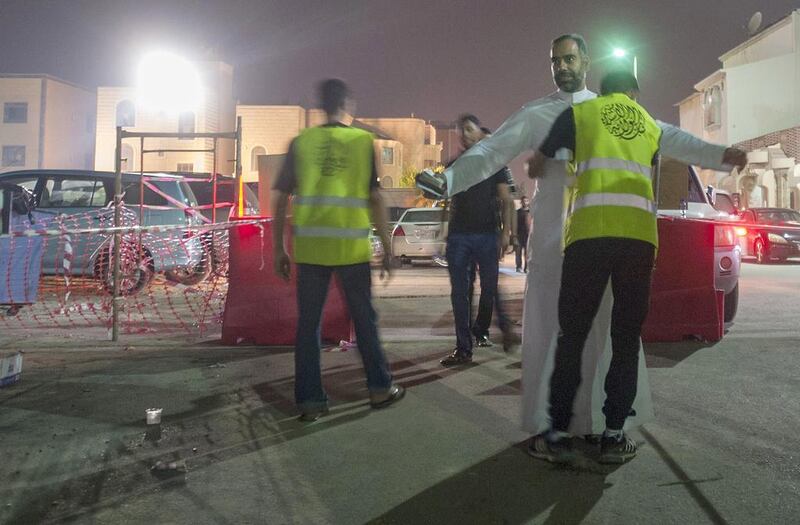ABU DHABI // A new ISIL affiliate has claimed responsibly for an attack that killed five Shiite worshippers in Saudi Arabia.
The attack took place outside Al Haidaria hussainiya on Friday at about 7pm in Saihat, a city in Saudi Arabia’s Eastern province.
The attacker was killed by security forces after “randomly firing at passers-by,” according to the official Saudi Press Agency.
In a statement, a group calling itself Bahrain Province, a previously unheard of ISIL affiliate, said it had carried out the attack and named the gunman as Shughaa Al Dosari. The claim of responsibility brings the number of groups professing to be offshoots from ISIL in the Arabian Gulf to at least five.
Saudi Arabia’s interior ministry spokesman General Mansour Al Turki said on Saturday that the attacker was Saudi.
Along with the five dead, which included four men and one woman, nine people were also injured.
Riad Kahwaji, head of the Dubai-based Institute for Near East and Gulf Military Analysis, said the announcement of Bahrain Province was an attempt by ISIL to portray itself as battling Iranian and Shiite influence in the Arabian Gulf.
There are heightened concerns about attacks on Shiites around the holy day of Ashura. Extremist groups like ISIL and Al Qaeda view Shiites as heretics. Last year, seven people, including children, died in an ISIL attack as Shiites gathered to commemorate Ashura in Saudi Arabia’s Eastern Province.
“Security measures in all regions and cities in the kingdom are taking into consideration all terrorist-related attempts to target security and stability of the kingdom,” Gen Al Turki said.
He praised the police for their “fast response” to Friday’s attack which he said saved many lives.
The shooting was the latest in a series of attacks in Saudi Arabia by groups claiming to be ISIL affiliates.
In August, 15 people were killed in Asir province in a suicide bombing at a mosque inside a police compound. In May, two ISIL suicide attacks on separate Shiite mosques in Eastern province killed 25 people.
Attacks on Shiite targets by groups claiming to be ISIL, have also taken place in Kuwait and Yemen.
In June, 27 people were killed when an ISIL suicide bomber detonated explosives at the Imam Al Sadeq mosque in Kuwait city. The attack, which wounded more than 200, was the worst in Kuwait’s history.
Ahead of the holy month of Muharram, which includes Ashura, Kuwait authorities asked Shiites to avoid gathering outside hussainiyas as a security precaution.
ISIL offshoots in the Arabian Gulf – including Sanaa Province, Aden and Abyan Province, Najd Province and Hijaz Province – have claimed attacks in Saudi Arabia, Kuwait and Yemen.
ISIL in Syria has also announced affiliates in Egypt, Algeria and Libya. Other terror groups, such as Boko Haram in Nigeria, the Islamic Movement of Uzbekistan and the Pakistani Taliban, have also sworn allegiance to ISIL, but their connection is unclear.
“They are showing themselves to be all over the Islamic world, challenging the establishment. At the same they are asserting themselves as a replacement to Al Qaeda,” Mr Kahwaji said.
While ISIL has captured vast expanses of territory in Syria and Iraq, Mr Kahwaji cast down on its strength in the Arabian Gulf. He said the number of ISIL affiliates and attacks increase the “perceptions” of its power.
“What is a group? It could be five people, it could be ten people. A group doesn’t mean that you have hundreds of followers.”
Saudi Arabia and other Arabian Gulf countries have taken part in a United States-led military coalition against ISIL since last year.
jvela@thenational.ae





